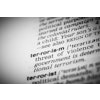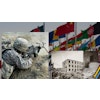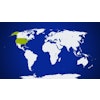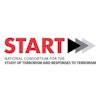WWF - Publication & Resources
https://www.amgasparin.wordpress.com
https://www.icrc.org/ihl
Middle East in the Contemporary World
Annual Reports
- CMES/MECW Annual Report 2011 (PDF 2.5 MB)
- CMES/MECW Annual Report 2012 (PDF 1.3 MB)
- CMES/MECW Annual Report 2013 (PDF 530 kB)
The majority of our research projects are situated within a larger ‘umbrella’
project called “The Middle East in the Contemporary World” or MECW.
This project, funded by the Swedish Research Council, is the foundation
for research efforts organized by the center with the aim of coordinating,
redirecting, and expandin g research at Lund University. MECW includes the following research domains:
project called “The Middle East in the Contemporary World” or MECW.
This project, funded by the Swedish Research Council, is the foundation
for research efforts organized by the center with the aim of coordinating,
redirecting, and expandin g research at Lund University. MECW includes the following research domains:
Women for Sustainable Growth(MECW 5)








